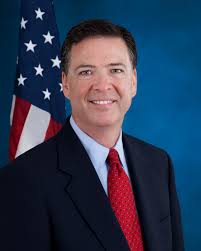The Role of James Comey in Modern American Politics

Introduction
James Comey, the former director of the FBI, has become a pivotal figure in American politics, particularly after his controversial decisions during the 2016 presidential election. His role in the investigation into the Hillary Clinton email controversy and later the inquiry into Russian interference in the election has led to significant debates about law enforcement’s role in politics. Understanding Comey’s actions is crucial for comprehending the complexities of American political dynamics and the impact they have had on public perception of law enforcement and democratic institutions.
Main Body
Appointment as FBI Director
James Comey was appointed as the seventh director of the FBI in September 2013 by President Barack Obama. His tenure began with high hopes, focusing on cybersecurity, terrorism, and the integrity of the FBI. However, it was his actions during the 2016 election that would forever change his legacy.
2016 Presidential Election Controversies
In July 2016, Comey announced the FBI’s findings regarding Secretary Clinton’s use of a private email server while she was Secretary of State. He criticized her actions as “extremely careless” but chose not to recommend charges. This announcement and subsequent letters he sent to Congress in late October, reopening the investigation, have been blamed by many for swaying the election results in favor of Donald Trump. Comey’s decisions drew ire from both sides of the political spectrum, highlighting the murky waters in which the FBI operates.
Post-FBI Career
After his dismissal by President Trump in May 2017, Comey became a prominent critic of the current administration, penning a memoir titled “A Higher Loyalty”. In his book, he argues for integrity in public service and reflects on the “moral compass” that guides law enforcement. His testimony before Congress and various media appearances have also kept him in the public eye, emphasizing the need for accountability in high-ranking governmental positions.
Impact on Public Perception of Law Enforcement
Comey’s controversial decisions have sparked ongoing debates about the role of law enforcement in political processes. Polls indicate a growing skepticism among the public regarding the FBI’s impartiality, and calls for reform are rising. His actions have raised significant questions about the boundaries between law enforcement and politics, which remain relevant issues in America today.
Conclusion
James Comey’s influence on American politics is undeniable. His decisions during a critical election period continue to shape discussions about ethics in law enforcement and the integrity of the electoral process. As the U.S. grapples with increasing polarization and calls for reform, Comey’s legacy serves as a reminder of the profound impact that individual actions in high offices can have on democratic institutions and public trust. Moving forward, the challenge remains for law enforcement to navigate these tricky dynamics while maintaining the integrity and neutrality expected by the public.









